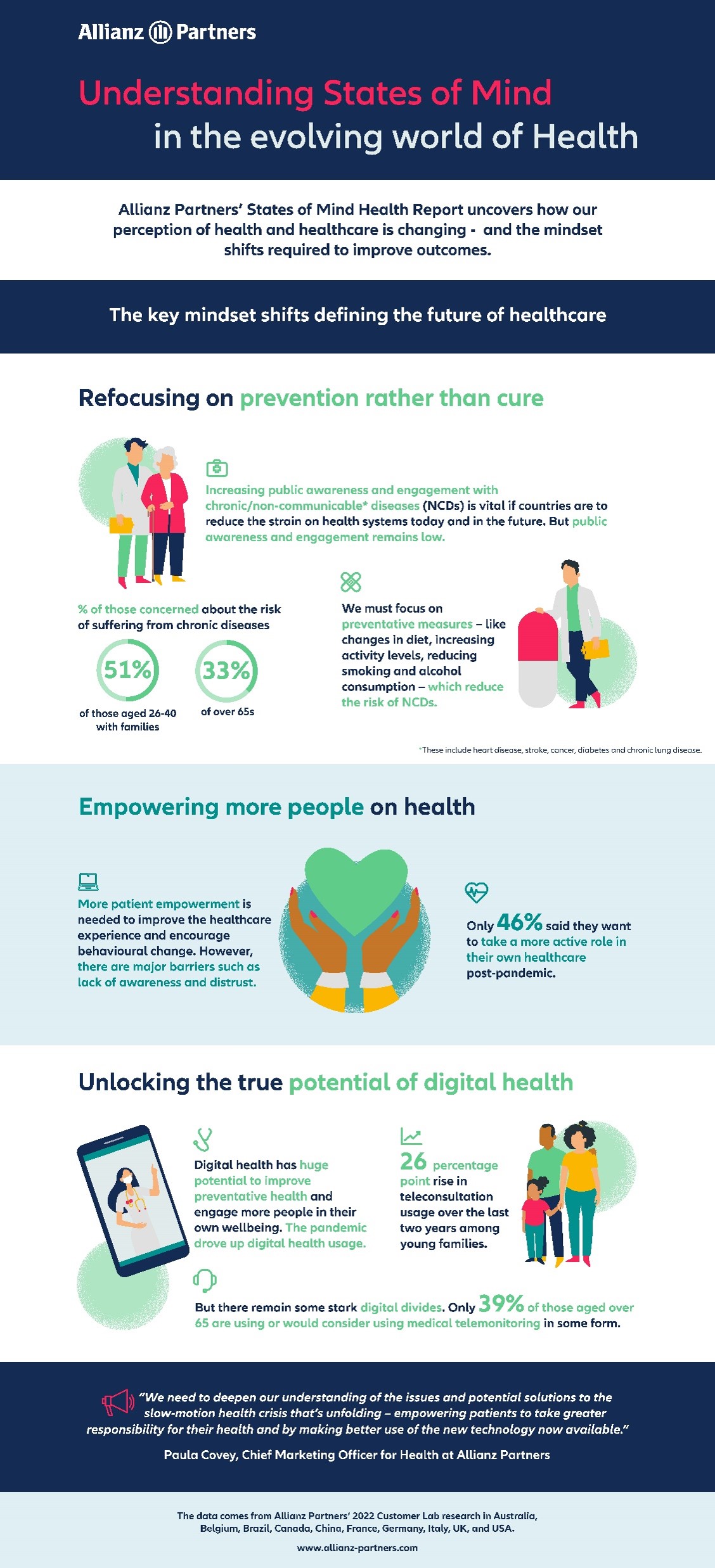Increasing public awareness and engagement with chronic or non-communicable diseases (NCDs) is vitally important if countries are to reduce the strain on health systems today and in the future. That’s especially true in the context of an ageing global population: as people live longer with chronic disease, the burden from NCDs will increase significantly.
The report highlights an urgent need to focus on preventative measures – like changes in diet, reducing smoking and alcohol consumption – which reduce the risk of NCDs. It argues that greater patient empowerment is required to improve patient experience and encourage behavioural change. But there are worrying signs in Allianz Partners’ survey data: only 46% of those surveyed across all demographics said they want to take a more active role in their own healthcare post-pandemic.
In order to increase patient proactivity, health providers must better understand the barriers facing individuals and do a better job of “meeting patients where they are” – for example, influencing via local communities and through family groups.
Health systems must also continue to engage in the evolution of digital health as a way of enabling better preventative health and greater patient engagement. While convenience often dominates around discussion digital health services, the report highlights the need to focus on the unique potential of health tech in areas like real-time data collection – and the major barriers to adoption, such as disparity of access.
Recent years have seen a sharp increase in the use and focus on digital health services among sections of the population. Allianz Partners’ data reveals a 26-point rise in teleconsultation usage over the last two years among young families. But there remains a stark digital divide across generations. Only 39% of those aged over 65 are using or would consider using medical telemonitoring in some form according to Allianz data. That’s in contrast to 66% of young families.
Paula Covey, Chief Marketing Officer for Health at Allianz Partners, commented: “I’m not convinced that the pandemic was a catalyst for most people to change their health-related behaviours. We’ve seen some trends to suggest that some people modified their lifestyles to become healthier, but my sense is that this was mainly driven by people who were already starting to be proactive about their health before the pandemic. Many others found it more difficult to be healthy in the last few years.
“With health systems around the world dealing with acute challenges this winter, we can’t afford to deprioritise chronic conditions, or the behavioural changes that reduce many of the risks. We need to deepen our understanding of the issues and potential solutions to the slow-motion health crisis that’s unfolding – empowering patients to take greater responsibility for their health and by making better use of the new technology now available.”



